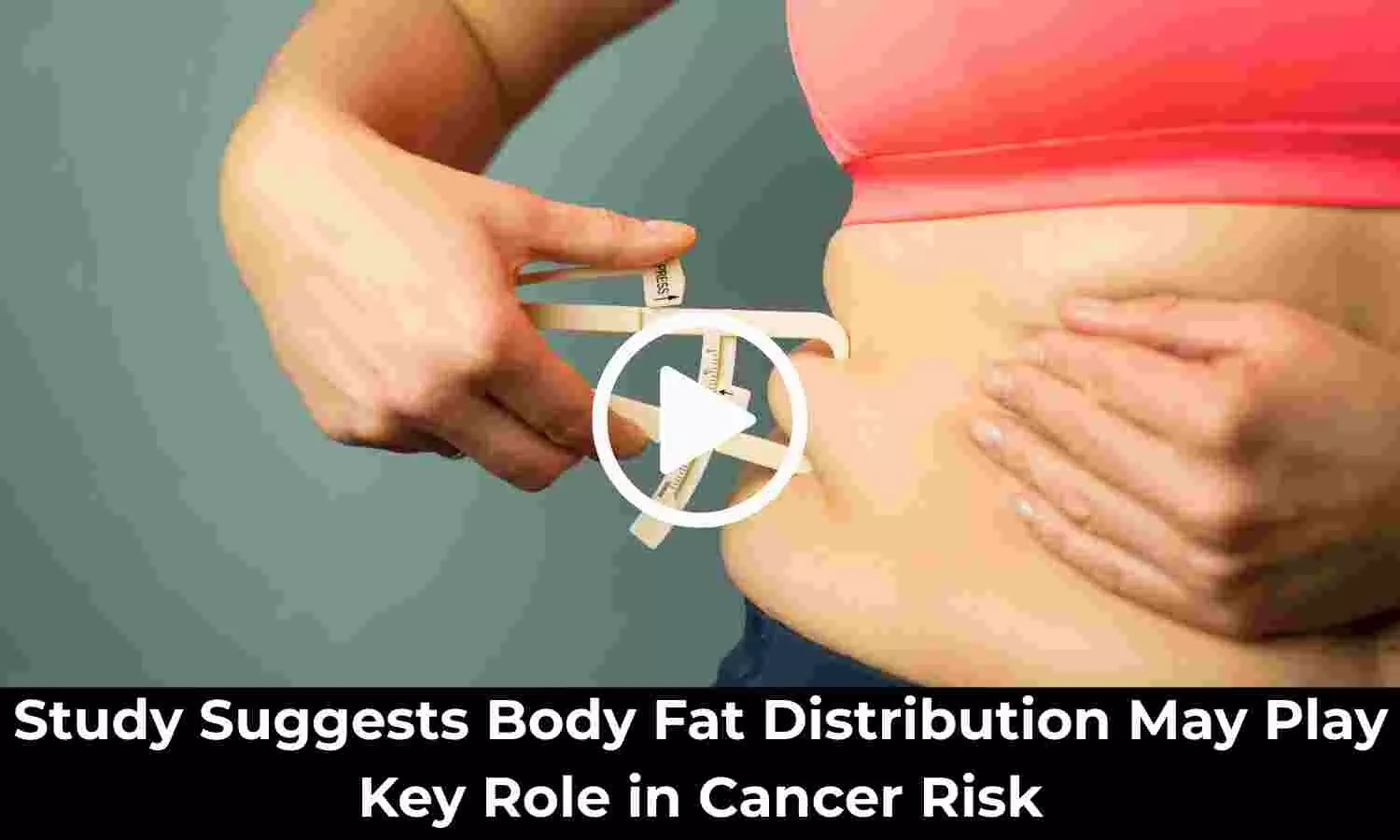Study Suggests Body Fat Distribution May Play Key Role in Cancer Risk
- byDoctor News Daily Team
- 26 September, 2025
- 0 Comments
- 0 Mins

How fat is distributed in people’s bodies could make a difference to their risk of certain cancers, according to new research led by the University of Bristol. The international study is published in theJournal of the National Cancer Institute (JNCI). Scientists have already shown that being obese increases a person’s risk of developing certain cancers. Obesity is usually measured using body mass index (BMI), but growing evidence – particularly fromheart healthresearch – suggests thatBMIalone doesn't capture the full picture when it comes to obesity-related health risks. However, the role of fat distribution incancerrisk has been relatively unexplored. Researchers investigated whether body fat at different locations across the body influences the risks of 12 obesity-related cancers - endometrial, ovarian, breast, colorectal, pancreas, multiple myeloma, liver, kidney (renal cell), thyroid, gallbladder, oesophageal adenocarcinoma, and meningioma. They used a technique that uses statistics, computing, and the natural variations in people’s genetics to identify patterns in large health data sets. The team found that fat distribution appears to influence cancer risk – but the relationship varies by cancer type. For some cancers, where fat is stored in the body seems more important than how much is stored; for others, the reverse is true; and, for some, both matter. In cancers where distribution is important, the specific locations of body fat driving this seem to differ by cancer, meaning the overall picture is quite complex. The paper’s findings fit with recent calls for change, including the 2024 European Association for the Study of Obesity framework and the Lancet Commission on the future of obesity, which have emphasised that BMI is a flawed diagnostic tool and that fat distribution matters. In the future, a better understanding of how fat distribution across the body affects cancer risk could help identify those most at risk and guide more personalised approaches to obesity treatment and cancer prevention. Ref:Distribution of fat could influence cancer risk, study suggests; University of Bristol; JNCI: World Cancer Research Fund, Cancer Research UK, Medical Research Council
Disclaimer: This website is designed for healthcare professionals and serves solely for informational purposes.
The content provided should not be interpreted as medical advice, diagnosis, treatment recommendations, prescriptions, or endorsements of specific medical practices. It is not a replacement for professional medical consultation or the expertise of a licensed healthcare provider.
Given the ever-evolving nature of medical science, we strive to keep our information accurate and up to date. However, we do not guarantee the completeness or accuracy of the content.
If you come across any inconsistencies, please reach out to us at
admin@doctornewsdaily.com.
We do not support or endorse medical opinions, treatments, or recommendations that contradict the advice of qualified healthcare professionals.
By using this website, you agree to our
Terms of Use,
Privacy Policy, and
Advertisement Policy.
For further details, please review our
Full Disclaimer.
Recent News
Number of steps taken matters more for better heal...
- 22 October, 2025
Immunotherapy after surgery shows potential in pre...
- 22 October, 2025
Study Finds Fatty Acids as Key Driver of Triple-Ne...
- 22 October, 2025
Kiwi fruits May Effectively Relieve Symptoms of Ch...
- 22 October, 2025
Daily Newsletter
Get all the top stories from Blogs to keep track.


0 Comments
Post a comment
No comments yet. Be the first to comment!